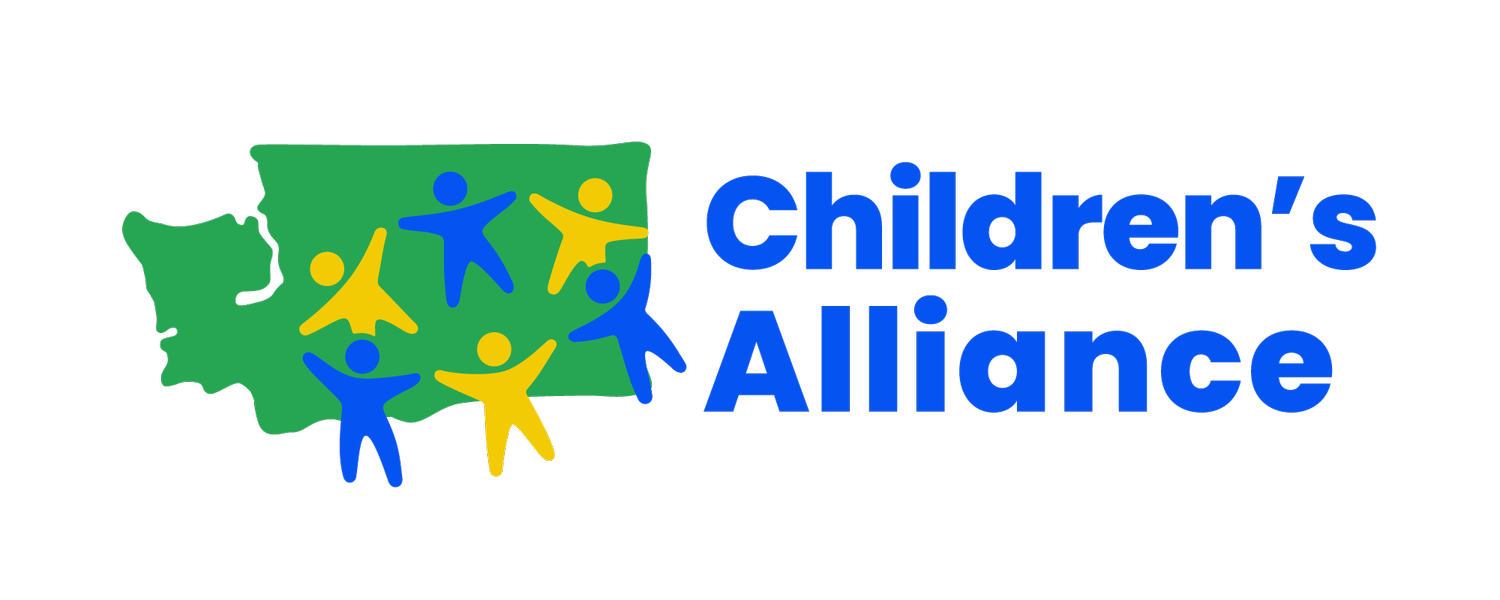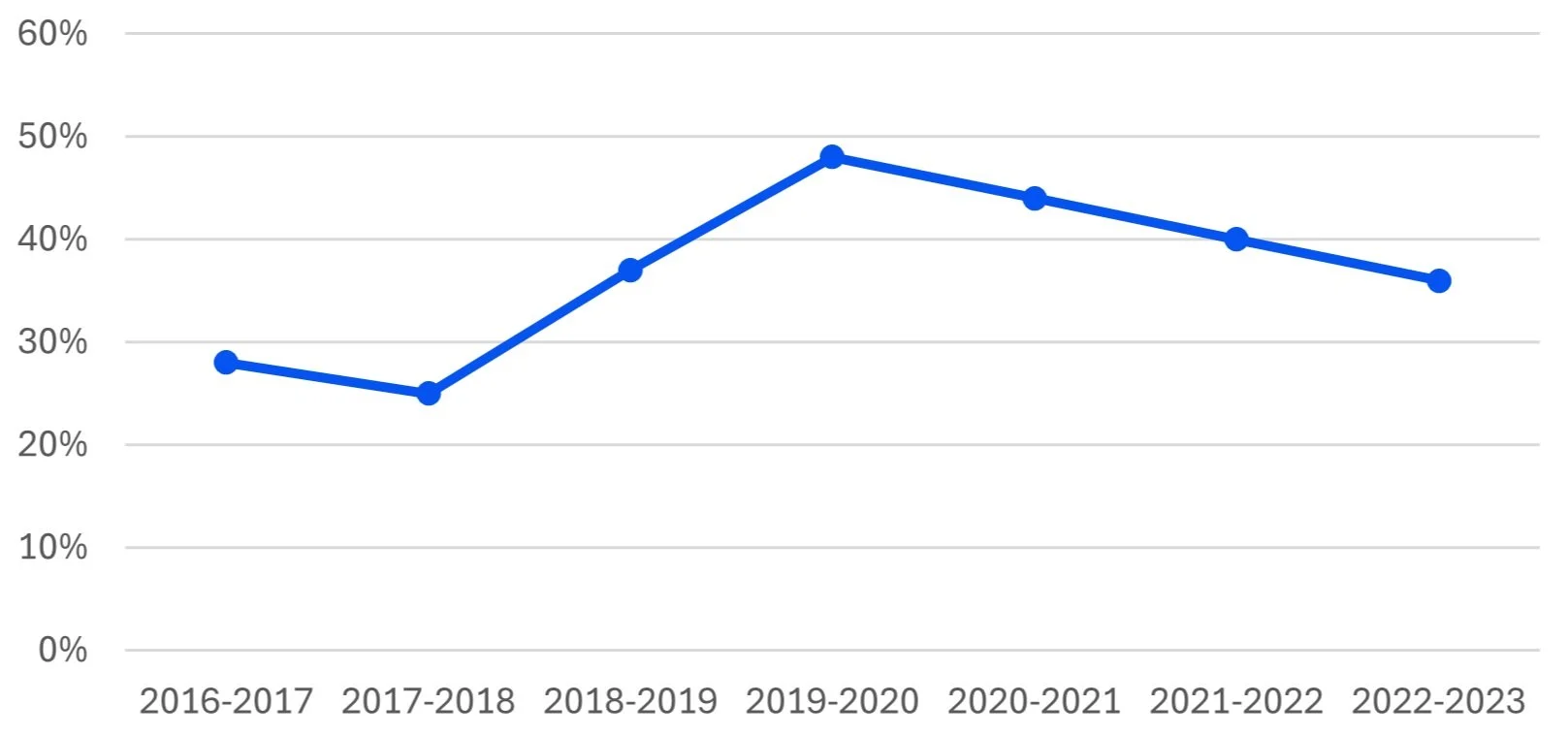Understanding the “Developmental Screenings” Indicator: To drive meaningful change for kids and families, we rely on data indicators—specific, measurable pieces of information that show how children are doing across key areas like health, education, and economic stability. One key indicator in our KIDS COUNT® data project measures how many children ages 9 to 35 months had a parent who completed a standardized developmental tool. Developmental screenings help identify whether young children are reaching important milestones in areas like thinking, speaking, and moving. Tracking how many children ages 9 to 35 months receive these screenings through a standardized tool shows whether families are getting early support. Early detection of developmental delays allows for timely interventions that can improve a child’s health, learning, and overall well-being. By monitoring this indicator, we can better understand gaps in early childhood care and work toward giving all kids a strong start. Click here to explore the data.
Overview
The American Academy of Pediatrics recommends universal screening for young children to assess and support their healthy development. Although many parents of young children are likely fairly familiar with completing the Ages and Stages questionnaires at pediatric visits, 2022-2023 data shows that only 36% of children ages 9 to 35 months received a recommended developmental screening in the past year. Developmental screening rates have remained below 50% since at least 2016, with an alarming decline beginning in 2019-2020.
Most young children are missing developmental screenings while the vast majority of early childhood developmental delays are unaddressed.
Graph 1: Gains in developmental screening rates have reversed since 2019-2020.
ISSUE BRIEF: TWO-THIRDS OF WASHINGTON’S YOUNG CHILDREN MISS VITAL SCREENINGS—AND EARLY SUPPORT OPPORTUNITIES
Developmental screenings in young children can occur in a variety of settings, including health care offices and early learning environments. Regardless of the setting, these screenings are vitally important to ensure children are growing up healthy. Research shows that an estimated 12-15% of children experience at least one developmental delay, but only 10% of those children receive intervention support.
Many of the skills children master in their first five years are foundational and necessary for lifelong learning. Developmental screenings help families and providers identify developmental support needs and connect them to early intervention services. In Washington state, early intervention is provided through Early Support for Infants and Toddlers (ESIT). At age three, children may also qualify for developmental support through special education services.
These services are critically important and should be provided as early as possible. In fact, federal law also mandates each state to implement comprehensive Child Find strategies to ensure that every child who may need targeted support has access to timely identification and service provision. Early intervention is unique to each child and their family, and it is extremely effective at addressing age-specific support needs. Most children who participated in ESIT had the support they needed for healthy development expectations in areas ranging from socio-emotional skills to behavior-based communication.
Past Work:
Children’s Alliance serves as the backbone organization for the Early Learning Action Alliance, a statewide coalition that collaboratively advocates for policies that can make high-quality early learning accessible to every child in Washington. In the 2024 legislative session, Washington made changes to funding mechanisms to ensure that ESIT services were fully funded in the first month of service, during which providers and families work in close coordination to assess strengths and support needs to develop an individualized approach. In the 2025 session, advocates successfully worked to ensure ESIT funding was linked to the preschool (ages 3-5) special education multiplier so that early intervention services were not left behind when funding is adjusted.
Ongoing Work:
ESIT and other support services for young children are incredibly effective in supporting healthy development. However, most young children are missing developmental screenings and the vast majority of early childhood developmental delays go unaddressed. While data show improving trends, achieving universal access to developmental screenings requires early learning advocacy to promote comprehensive systems of care that support young children’s holistic development.
---
County-level data are not available, but you can learn more about Washington’s ESIT program here.
KIDS COUNT® is a registered trademark of The Annie E. Casey Foundation., Inc., and is used with permission of the Foundation.

